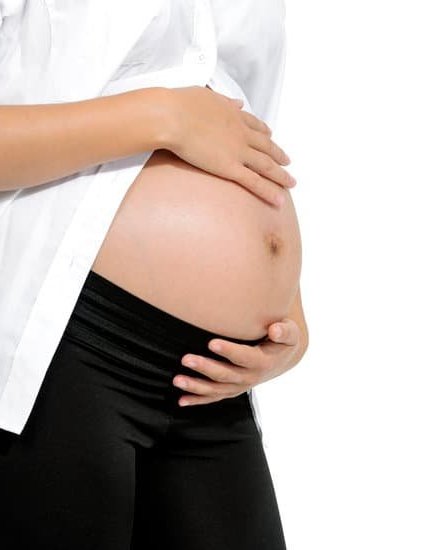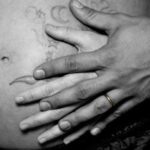Experiencing diarrhea in early pregnancy can be a distressing and uncomfortable symptom for expectant mothers. It is important to understand the causes, symptoms, potential risks, and complications of this common issue. This article will provide valuable information on how to recognize the symptoms of diarrhea in early pregnancy, when to seek medical attention, and tips for managing and dealing with this condition.
During the early stages of pregnancy, hormonal changes and increased levels of progesterone can cause digestive disturbances, leading to diarrhea. Additionally, factors such as stress, dietary changes, food sensitivities or intolerances, and prenatal vitamins can also contribute to gastrointestinal issues during pregnancy. Understanding the underlying causes of diarrhea in early pregnancy is essential in finding effective ways to manage and alleviate this uncomfortable symptom.
Recognizing the symptoms of diarrhea in early pregnancy is crucial for expectant mothers. In some cases, severe or prolonged diarrhea can lead to dehydration and nutrient deficiencies, posing potential risks and complications for both the mother and the baby. Therefore, knowing when to seek medical attention for diarrhea during early pregnancy is important for ensuring the well-being of both the mother and her developing baby.
Recognizing the Symptoms of Diarrhea in Early Pregnancy
During the early stages of pregnancy, it is common for women to experience a variety of digestive issues, including diarrhea. It’s important to be able to recognize the symptoms of diarrhea in early pregnancy in order to effectively manage and address this discomfort.
Some common symptoms of diarrhea in early pregnancy include:
- Frequent loose or watery stools
- Abdominal cramping
- Bloating and discomfort
- Nausea and vomiting
It’s important to note that while diarrhea can be a normal part of early pregnancy for some women, it can also be a sign of an underlying issue that may require medical attention. If these symptoms persist or are accompanied by fever, dehydration, severe abdominal pain, or blood in the stool, it is crucial to seek medical advice promptly.
In addition to these physical symptoms, it is also common for women experiencing diarrhea in early pregnancy to feel fatigued and emotionally overwhelmed. It’s important to take note of any changes in your overall well-being and communicate with your healthcare provider about any concerns you may have about your symptoms.
Potential Risks and Complications of Diarrhea in Early Pregnancy
Diarrhea in early pregnancy can be concerning for expectant mothers, as it can lead to complications if not managed properly. One potential risk of diarrhea in early pregnancy is dehydration. The frequent passing of loose or watery stools can lead to a significant loss of fluids and electrolytes, which is particularly dangerous for pregnant women. Dehydration can result in dizziness, lightheadedness, and in severe cases, it can even lead to preterm labor.
Another complication of diarrhea in early pregnancy is malnutrition. When the body is unable to properly absorb nutrients from food due to diarrhea, both the mother and the developing fetus may suffer from a lack of essential vitamins and minerals. This can affect the baby’s growth and development and increase the risk of birth defects.
In some cases, persistent diarrhea in early pregnancy may also be a sign of an underlying infection or illness that requires medical attention. Certain bacterial or parasitic infections that cause diarrhea can be harmful to both the mother and the baby if left untreated. It’s important for expectant mothers experiencing prolonged or severe diarrhea to seek medical advice to rule out any potential serious conditions causing their symptoms.
| Potential Risks | Complications |
|---|---|
| Dehydration | Dizziness, lightheadedness, preterm labor |
| Malnutrition | Deficiency in essential vitamins and minerals affecting fetal development |
| Infection | Possible bacterial or parasitic infections harmful to mother and fetus |
When to Seek Medical Attention for Diarrhea in Early Pregnancy
Severe Dehydration Symptoms
While it is common to experience diarrhea in early pregnancy, it is essential to be aware of when the symptoms may indicate a more serious issue. If you are experiencing severe dehydration due to persistent diarrhea, it is crucial to seek medical attention immediately. Symptoms of severe dehydration include dizziness, extreme thirst, dark urine, and feeling lightheaded or faint. Dehydration can pose significant risks not only to your health but also to the health of your developing baby.
Persistent Diarrhea Despite Home Remedies
If you have been trying home remedies and dietary changes to manage your diarrhea without improvement in your condition, it is advisable to consult with a healthcare professional. Persistent diarrhea can lead to deficiencies in essential nutrients and electrolytes, which can impact both your health and the development of your baby. Your doctor may be able to provide additional guidance or medication to help alleviate your symptoms.
Blood in Stool
Another red flag that warrants immediate medical attention during early pregnancy is the presence of blood in your stool. This could indicate a more serious underlying condition such as an infection, inflammatory bowel disease, or other gastrointestinal issues that require prompt evaluation and treatment by a healthcare provider.
Understanding when it is necessary to seek medical attention for diarrhea during early pregnancy can help ensure the well-being of both you and your growing baby. It is always best to err on the side of caution and consult with a healthcare professional if you have any concerns about the symptoms you are experiencing.
Tips for Managing Diarrhea in Early Pregnancy
Managing diarrhea in early pregnancy can be challenging, but there are several tips that can help alleviate the symptoms and discomfort. It is important to stay hydrated and replenish lost fluids due to diarrhea. Drinking plenty of water, clear broth, or electrolyte-replacement drinks can help prevent dehydration. Avoiding caffeine and alcohol is also crucial as they can exacerbate dehydration.
Rest and Relaxation
During this time, it’s essential to get enough rest and relaxation. Stress can worsen gastrointestinal symptoms, so managing stress through activities like yoga, meditation, or gentle exercise can be beneficial.
Avoiding Irritants
Certain foods and substances may aggravate diarrhea. Spicy foods, greasy foods, dairy products, and artificial sweeteners are known irritants for some individuals experiencing diarrhea. It may be helpful to keep a food diary to identify triggers for your symptoms and avoid them accordingly.
Taking over-the-counter medications for diarrhea should be done cautiously during pregnancy. Before taking any medication or supplement, it is advisable to consult with a healthcare provider to ensure safety for both you and your baby.
Diet and Nutrition Recommendations for Dealing With Diarrhea in Early Pregnancy
During early pregnancy, diarrhea can be a common and uncomfortable symptom for many women. Understanding how to manage this issue through diet and nutrition is crucial for both the mother’s well-being and the health of the developing baby.
One important recommendation for dealing with diarrhea in early pregnancy is to focus on staying hydrated. Diarrhea can lead to dehydration, so it is essential to drink plenty of fluids such as water, herbal tea, clear broths, and electrolyte drinks. It is also beneficial to avoid beverages that can worsen diarrhea, such as caffeinated or sugary drinks.
In addition to staying hydrated, it is essential to eat foods that are gentle on the stomach but provide necessary nutrients for both the mother and the baby. Bland foods like rice, bananas, toast, and applesauce can help settle the stomach while providing some much-needed sustenance. Avoiding greasy or spicy foods can also help reduce symptoms of diarrhea in early pregnancy.
It is important to note that if diarrhea persists or is accompanied by other concerning symptoms such as fever or abdominal pain, it is crucial to seek medical attention promptly.
| Recommendations | Details |
|---|---|
| Stay Hydrated | Drink plenty of fluids like water, herbal tea, clear broths, and electrolyte drinks. |
| Eat Gentle Foods | Consume bland foods like rice, bananas, toast, and applesauce while avoiding greasy or spicy foods. |
Home Remedies for Diarrhea in Early Pregnancy
Dealing with diarrhea in early pregnancy can be uncomfortable and concerning, but there are several home remedies that can help alleviate symptoms and promote overall digestive health. Here are some effective home remedies for managing diarrhea during early pregnancy:
- Stay Hydrated: Drinking plenty of water is crucial to prevent dehydration, especially when experiencing frequent bowel movements. Hydration helps replenish the body’s fluids lost through diarrhea and supports overall well-being.
- Probiotic Foods: Incorporating probiotic-rich foods such as yogurt, kefir, and fermented vegetables into your diet can help restore the balance of healthy bacteria in the gut. Probiotics may aid in regulating digestion and reducing the frequency of loose stools.
- Ginger Tea: Sipping on ginger tea can provide relief from gastrointestinal discomfort associated with diarrhea. The anti-inflammatory properties of ginger may help soothe the digestive system and alleviate symptoms.
Additionally, it is essential to avoid certain triggers that can exacerbate diarrhea during early pregnancy. These may include:
- Fatty or Spicy Foods: These types of foods can irritate the digestive system and lead to further discomfort.
- Caffeine and Carbonated Beverages: Both caffeine and carbonation can stimulate the intestines, potentially worsening diarrhea symptoms.
- Dairy Products: For some individuals, dairy products may exacerbate diarrhea due to lactose intolerance or other sensitivities.
By incorporating these home remedies and making dietary adjustments, women experiencing diarrhea in early pregnancy can often find relief from their symptoms while supporting their overall well-being. However, it is important to consult with a healthcare provider before implementing any new remedies or starting a different diet regimen during pregnancy.
Conclusion
In conclusion, experiencing diarrhea in early pregnancy can be challenging, but it is important to understand that it is a common occurrence and often not a cause for serious concern. It is essential to recognize the symptoms and potential risks of diarrhea in early pregnancy, as well as know when to seek medical attention.
Taking care of yourself and your baby during this time is crucial, so managing the symptoms and seeking appropriate help when necessary is vital for a healthy pregnancy.
While dealing with diarrhea in early pregnancy, it is important to focus on maintaining good nutrition and staying hydrated. Following a diet that includes easily digestible foods can help manage the symptoms and ensure that you are providing proper nourishment for both yourself and your developing baby. Additionally, considering home remedies such as consuming probiotics or herbal teas can offer relief from diarrhea while being gentle on your body during this delicate time.
Remember, if you are experiencing persistent or severe diarrhea in early pregnancy, it is crucial to consult with your healthcare provider. They can provide personalized recommendations and treatment options to help manage your symptoms and ensure the health of both you and your baby. By taking proactive steps to address diarrhea in early pregnancy, you can prioritize your well-being and promote a healthy start for your little one.
Frequently Asked Questions
Is It Normal to Have Diarrhea in First Trimester of Pregnancy?
It is not uncommon to experience diarrhea in the first trimester of pregnancy. Hormonal changes, prenatal vitamins, and dietary adjustments can all contribute to this symptom, but it is important to seek medical advice if it persists.
Can Morning Sickness Cause Diarrhea Instead of Vomiting?
Yes, morning sickness can sometimes cause diarrhea instead of vomiting. The hormonal changes and increased sensitivity of the digestive system during pregnancy can lead to gastrointestinal disturbances, including diarrhea for some women.
Can Implantation Give You Diarrhea?
It is possible for implantation to cause diarrhea in some women. Some pregnant women might experience gastrointestinal symptoms such as diarrhea or constipation along with other signs of early pregnancy due to hormonal changes and their body adjusting to the pregnancy.

Welcome to my fertility blog. This is a space where I will be sharing my experiences as I navigate through the world of fertility treatments, as well as provide information and resources about fertility and pregnancy.





